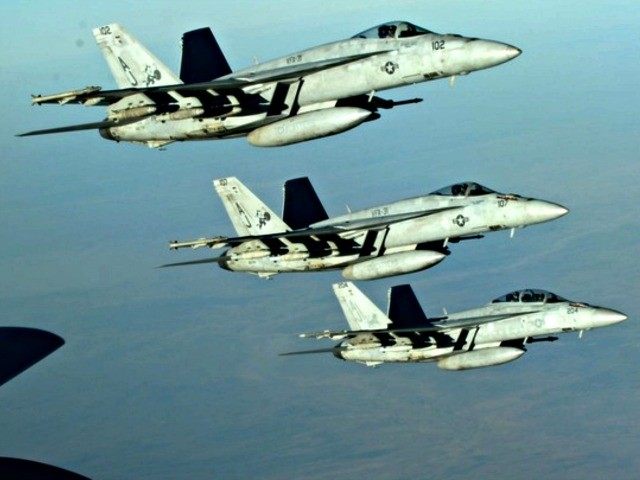After ISIS released the horrifying videotaped immolation of captured Jordanian pilot Mu’ath Kaseasbeh, the Obama administration suddenly decided to reveal that the United Arab Emirates withdrew from the anti-ISIS coalition almost two months ago, citing fears that their own pilots would be captured by the Islamic State. The UAE said it would not resume airstrikes against ISIS until the U.S. military beefs up its search-and-rescue operations in northern Iraq, rather than staging them out of Kuwait.
Lt. Kaseasbeh’s plane went down deep in enemy territory, and he was seized very quickly, so it seems unlikely that any conceivable improvement to SAR capabilities would have rescued him. However, according to the New York Times report, the UAE’s complaints grew quite heated:
In a blunt exchange last week in Abu Dhabi, the United Arab Emirates’ foreign minister, Sheikh Abdullah bin Zayed bin Sultan Al Nahyan, asked Barbara Leaf, the new American ambassador, why Central Command, in his country’s view, had not put proper assets in northern Iraq for rescuing downed pilots, a senior administration official said.
“He let her have it over this,” the official said, speaking on the condition of anonymity because he was not authorized to speak publicly on the issue. It was Ms. Leaf’s first courtesy call on the foreign minister.
The exchange followed a month of disputes between American military officials and their counterparts in the United Arab Emirates, who have also expressed concern that the United States has allowed Iran to play a growing role in the fight against the Islamic State, also known as ISIS and ISIL.
A spokesman with Central Command declined to comment.
Telling this story now is only going to enhance the morale-crushing effect of Kaseasbeh’s hideous death — all the more so because the UAE was the very first member the U.S.-organized anti-ISIS coalition, and has been one of the biggest allied players in the air campaign. As the Times delicately notes, “the relationship with the United Arab Emirates has become especially important as United States relations with other Muslim allies like Turkey, Egypt and Saudi Arabia have grown tense.”
It is possible that the complaint about pilot safety is a proxy for the UAE expressing more significant concerns about Iran, which has tendered some unpleasant invitations for the United Arab Emirates to join the rebooted Persian Empire. The UAE is another Sunni-dominated region with a periodically disgruntled Shiite minority, so Iran has both carrots and sticks available to bring the Emirates into their orbit. A post-Islamic State scene featuring greatly increased Iranian influence would not be good news for Gulf states that would prefer to keep Tehran at bay.
If the Jordanians follow through on their King’s promise to unleash Clint Eastwood-levels of hell against ISIS, while the UAE’s concerns about Iran are more quietly addressed, perhaps they will come back on board soon. The anti-ISIS coalition is showing disturbing levels of strain, everywhere from ground-pounding Kurds complaining about insufficient support from the United States, to restless populations complaining that their leaders are too eager to curry American favor by fighting a savage enemy. The last thing they need is social-media-savvy ISIS savages boasting about their success in “degrading and ultimately destroying” the coalition lined up against them.

COMMENTS
Please let us know if you're having issues with commenting.